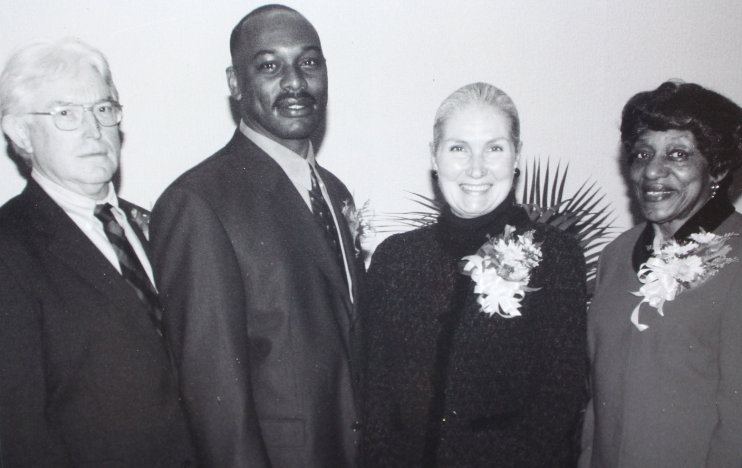
Arden
Matthew Bacoate's story is one of selfredemption. It is a story of sadness, disappointment, drug addiction and crime; but the ending is happy. When Bacoate was at his lowest, broken by his addiction to alcohol and cocaine and alone in his Buncombe County jail cell, he decided that he could turn his life around. He did, and because he could do it, he decided that he could help others.
He had learned to deal with life on life's terms, not his own terms.
Life on Life’s Terms became the name of his organization, an agency that wants people no one else wants. Bacoate seeks men and women from Buncombe County and elsewhere who are or have been addicted to drugs. He bases his intensive residential recovery program on his own experience, using a 12-step program, peer mentoring, strict rules, graduated privileges and job placement. Court officials sometimes turn to his program as an alternative to incarceration.
Life on Life's Terms doesn’t work for everyone, but its 34 percent success rate is about twice the national average for recovery programs. Its participants represent a broad spectrum of society; what they have in common is a desire to be drug-free and sober.
Life on Life’s Terms also works to keep young people from becoming addicts. Bacoate takes a powerful presentation to middle and high schools in the Asheville area. When he tells students how he stared death in the face, they listen.
Greensboro
In a Hollywood movie, they would be the odd couple, Nettie Coad and Suzanne Plihcik. In real life in Greensboro, they are a team with a vision to undo racism and build a better community. Coad is black, a community activist who grew up in segregated Greensboro in the 1940s and '50s. Racism always has been a part of her life - separate drinking fountains, no service at restaurants. Plihcik is white, and she, too, grew up in the segregated South, a few years behind her friend. But hers was a life of privilege, and now she knows it was because of the color of her skin - because of racism.
Together, these friends fight racism in their professional lives. Hundreds of people have come to their classes and seminars to learn how racism developed and became so ingrained in American society. Teaching that is the way, the two believe, to begin the process of undoing racism. By all accounts, they are making a difference in how people of different races understand each other, work together and live together.
In their personal lives, these best friends practice what they teach.
Coad had always focused on problems in her neighborhood. Plihcik has worked in Washington and had a more global view. Now, they complement each other, encourage each other and know that they have learned about the real world from each other.
Murfreesboro
Frank Stephenson is a product of rural northeastern North Carolina who speaks with deep affection for its agrarian economy, distinctive cooking, history and people - black, Native American and white. He also understands the area’s problems, particularly the difficulty teenagers from low-resource families have in obtaining a college education. For almost a quarter of a century, he has been a tireless advocate for these young people. Bertie, Hertford and Northampton Counties, where his Upward Bound Program operates, are among the poorest in the state. Stephenson saw wasted lives and decided there had to be a brighter future for teenagers coming out of predominantly black homes in the region. The key was a college education. He established Upward Bound at Chowan College in Murfreesboro to offer teenagers an intense summer program that would beef up their academic skills, give them cultural experiences, raise their self-esteem and get them college-bound. The program offers tutoring on Saturdays during the school year.
Stephenson has overcome all sorts of opposition and roadblocks, even a misguided attempt to scuttle the program. He had to fight racial bias, one of the main sources of the objections.
Today, Stephenson enjoys the strong support of administrators and staff at Chowan. Approximately 2,000 students have participated in Upward Bound, including a doctor at Johns Hopkins, a professor at Bradley University, teachers, nurses, the police chief of a large North Carolina city, a television producer and many others who give Stephenson credit for helping them have productive lives.